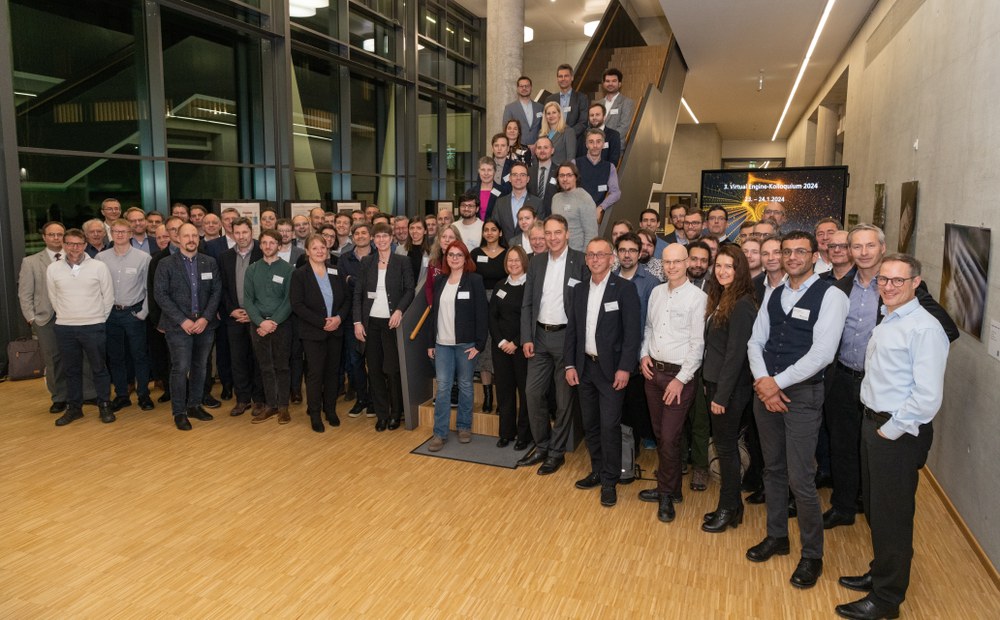3rd Virtual Engine Colloquium: With digitalization and automation to the virtual engine

- The DLR Institute of Test and Simulation for Gas Turbines in Augsburg is organized its 3rd Institute Colloquium targeting the "Virtual Engine".
- Experts from industry and research will discussed about digitalization and automation in aviation.
- Focal points: Aviation, digitalization, Industry 4.0
The year is off to a good start: The Virtual Engine Colloquium (VEK), which traditionally takes place in the fourth week of January at the DLR Institute of Test and Simulation for Gas Turbines, was once again a complete success. On January 23 and 24, 2024, over a hundred representatives from industry and science met in Augsburg to discuss the latest trends and opportunities in relation to the Virtual Engine. Thanks to the now familiar tele-conferencing technology, even those whose travel plans had been thwarted by the train drivers' strike announced at short notice were able to attend.
The digitalization of data and processes and the use of various forms of artificial intelligence (AI) has long been a key issue in the technical community. In order to use AI successfully, end-to-end digitized data is required to train the algorithms and end-to-end digitized processes are needed to efficiently use the results generated by the AI. But since ChatGPT was launched a year ago, AI has begun to spread like wildfire. The resulting enormous pressure on progress in the field of "Virtual Engines" was palpable among all VEK participants, aiming to combine processes, data flows and metadata of the virtual engine along the entire value chain from the design process, development, production and operation to the end of the operating and service life into a complete digital image.
After a welcoming address by DLR Divisional Board Member for Aeronautics Dr. Markus Fischer, industry representatives from MTU, Lufthansa Technik and Rolls-Royce Deutschland presented application examples of automated processes that have been proved in practice after having been made faster and less error-prone based on digitizing data and processes. The presentation by Stanislaus Reitenbach, DLR Institute of Propulsion Technology, gave a fascinating impression of the potential of Large Language Models as a new link to simplify the user's interaction with a highly complex simulation program.
Strong attention was given to digitalization and automation in research and development, and in particular the importance of ontologies and knowledge graphs for fundamental structuring. Important aspects to design FAIR (Findable, Accesible, Interoperable, Reusable) data structures were explained by Professor Christoph Eberl from the Fraunhofer Institute for Mechanics of Materials. The DLR Institute of Test and Simulation for Gas Turbines not only contributed several lectures by Professor Stefan Reh and his staff, but also gave a practical demonstration of the end-to-end digitalization and automation of data and process flows based on ontologies in the DLR Institute's laboratory. Presenting digitization from a completely different professional perspective the lecture by Dr Angela Didié, German Center for Diabetes Research, was an impressive demonstration of the applicability of basic ontological methods to completely different types of object dependencies.
As valuable as the impetus provided by the diverse presentations and demonstrations was the exchange between the participants on individual level during the breaks and over dinner. Many new ideas were born, interesting possibilities were discussed and everyone agreed: "We'll be back at the Virtual Engine Colloquium 2025!"
